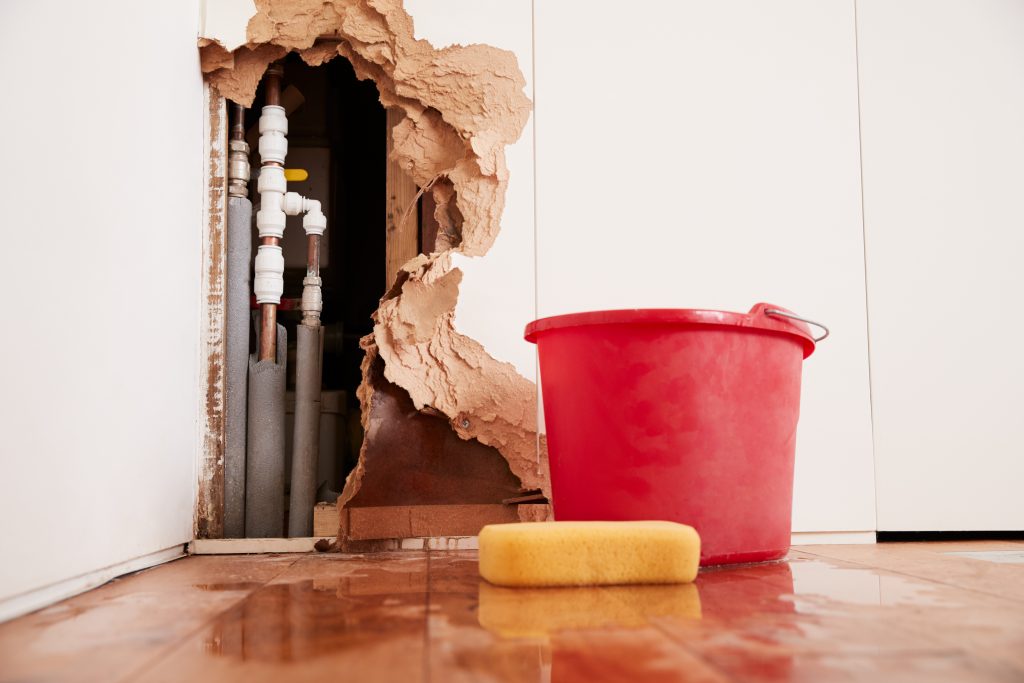Six Ways to Identify Hidden Water Line Leaks Efficiently
Six Ways to Identify Hidden Water Line Leaks Efficiently
Blog Article
The author is making several great points related to Leaking water lines as a whole in this content further down.

Early discovery of leaking water lines can alleviate a prospective catastrophe. Some tiny water leaks might not be visible.
1. Take A Look At the Water Meter
Inspecting it is a proven means that helps you uncover leakages. If it moves, that indicates a fast-moving leak. This suggests you may have a slow-moving leak that could also be below ground.
2. Examine Water Intake
Analyze your water expenses as well as track your water intake. As the one paying it, you must notice if there are any disparities. If you detect sudden changes, in spite of your consumption coinciding, it indicates that you have leakages in your plumbing system. Remember, your water costs should drop under the same array each month. An abrupt spike in your bill shows a fast-moving leak.
A steady boost every month, also with the same routines, shows you have a sluggish leakage that's additionally slowly intensifying. Call a plumber to extensively check your home, particularly if you feel a warm location on your floor with piping underneath.
3. Do a Food Coloring Examination
When it comes to water intake, 30% comes from toilets. If the color somehow infiltrates your bowl during that time without flushing, there's a leakage in between the tank and dish.
4. Asses Outside Lines
Do not neglect to examine your outdoor water lines as well. Test faucets by connecting a yard pipe. Should water permeate out of the link, you have a loosened rubber gasket. Change this and guarantee all connections are limited. It will help obtain it professionally examined and also maintained yearly if you've obtained a lawn sprinkler system. One little leakage can waste lots of water and spike your water expense.
5. Examine and Evaluate the Situation
House owners must make it a routine to inspect under the sink counters as well as also inside cabinets for any kind of bad odor or mold and mildew growth. These two red flags suggest a leakage so timely interest is called for. Doing regular evaluations, even bi-annually, can save you from a major problem.
A lot more importantly, if you know your house is currently old, keep a watchful eye on your heating units, hoses, pipes etc. Check for discolorations and also deteriorating as most appliances and also pipes have a life expectancy. They will certainly likewise normally weaken as a result of wear and tear. If you suspect leaking water lines in your plumbing system, do not wait for it to intensify. Call a professional plumber today so you don't wind up with a terrible mess in your house.
Early discovery of leaking water lines can alleviate a potential disaster. Some tiny water leakages may not be visible. Examining it is a guaranteed way that helps you discover leaks. One small leakage can lose heaps of water as well as spike your water expense.
If you suspect dripping water lines in your plumbing system, do not wait for it to intensify.
Tips for Detecting Hidden Plumbing Leaks
Check for Signs of Water Damage
We recommend that you check the following places for evidence of water damage:
Near where you store your water heater
Around your sump pump
In areas where pipes are visible
Underneath cabinetry or a vanity beneath a sink
Where your outside hose bib isIf water damage is present, you may also notice mold and/or mildew or smell a foul or musky odor. You might also be able to hear the sound of water running where it shouldn’t be.
Perform a Water Meter Test
One of the easiest ways to determine whether you have a hidden leak on your property is to test your water meter. Turn off all appliances in that use water and make sure you don’t have any faucets running. Locate your water meter and record the reading on it. Continue to leave everything off for a minimum of two hours and then go back and see the meter reading. If it’s a noticeable difference, chances are you have a hidden plumbing leak.
Monitor Your Outside Usage
As the seasons change, you might use more water to keep your yard lush and green and your flowers blooming. However, it’s important to routinely ensure that your sprinkler or irrigation system is working properly and that any outside faucets are completely off. This way you’re not wasting any water.
Do the Toilet Food Coloring Test
Are you kept up at night because your toilet continues to run? If you’ve noticed your toilet randomly refills, especially when it’s not in use, it could mean you have a defective flapper tank and water will leak into the bowl. Fortunately, there’s an easy (and kind of fun!) way to test whether you’re dealing with this issue. Grab some food coloring and add a few drops into your toilet’s tank. Wait 15 minutes and then check to see whether the water in the bowl is colored. If it is, you have a leak within your toilet and the internal assembly will need to be repaired or replaced.
https://www.carterservices.com/blog/2020/february/tips-for-detecting-hidden-plumbing-leaks/

I am just very inquisitive about Detecting hidden plumbing leaks and I am hoping you enjoyed the entire entry. Do you know about another individual who is sincerely interested in Locating water leaks? Take a moment to share it. Thank you so much for taking the time to read it.
Overflow? We're here! Report this page